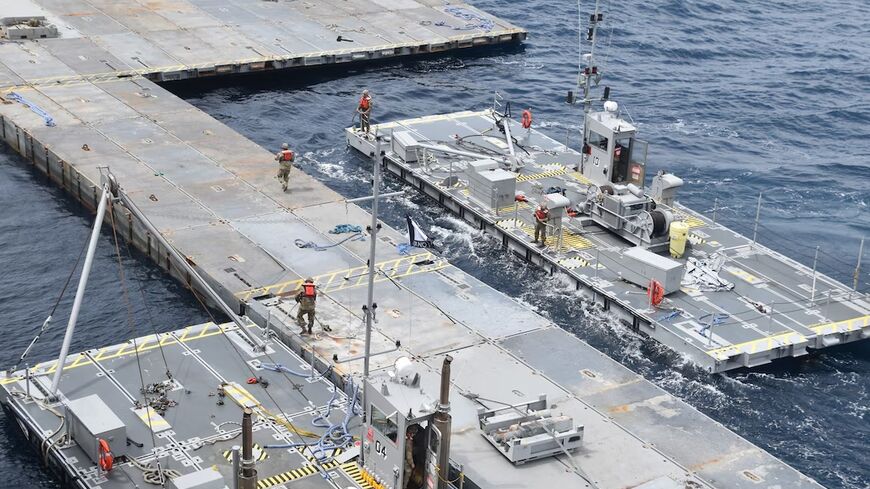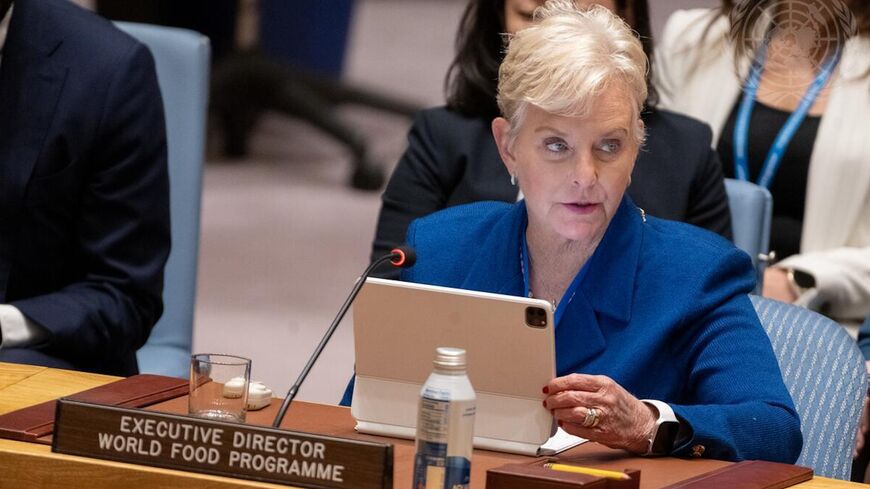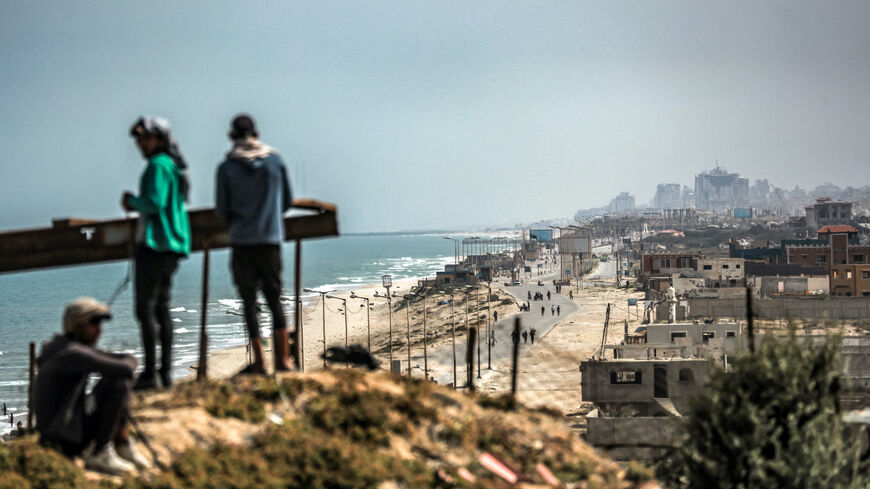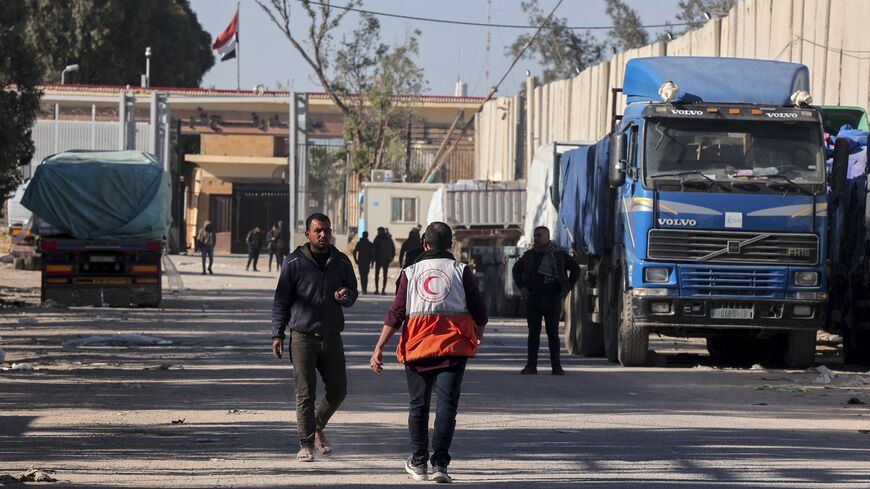US says Israel boosted Gaza aid flow after convoy strike, but more is needed
US envoy David Satterfield said the volume of assistance reaching Gaza is "significantly greater" than it was, but issues remain with aid distribution.

WASHINGTON — Israel has taken considerable steps to boost aid flows into the Gaza Strip since its deadly strike on a group of foreign aid workers earlier this month, but "more needs to be done" as famine looms in the Palestinian enclave, a senior US official said Tuesday.
David Satterfield, the US special envoy for Middle East humanitarian issues, told reporters the volume of humanitarian assistance reaching the coastal territory, especially the hunger-stricken north, is “significantly greater” than in previous months.
"Is it enough? No, it is not enough. But it is progress," Satterfield said.
He declined to say whether he was satisfied with the steps Israel has taken so far.
“I’m not going to give you a grade,” Satterfield said. “We are in the constant process of monitoring, assessing, facilitating [and] supporting progress toward the goals the president set.”
After Israeli drone strikes killed seven aid workers, including a US citizen, from World Central Kitchen in early April, President Joe Biden threatened to condition future US support on Israel taking concrete steps to improve humanitarian conditions in Gaza, where local health officials say more than 34,000 people have died in the six-month war. The death toll includes more than 200 aid workers, most of them Palestinian.
Under US pressure, Israel promised to facilitate more aid access, including by opening the Erez crossing into northern Gaza, permitting the temporary use of Ashdod port in southern Israel and expanding the operational capacity of its existing aid access points.
Last week, United Nations Secretary-General Antonio Guterres said the impact of those steps had been “limited and sometimes nil,” in part because “apparent progress in one area is often canceled out by delays and restrictions elsewhere.”
Satterfield painted a somewhat different picture in a briefing with reporters Tuesday, pointing to an increase in the number of aid trucks crossing into Gaza. Over 200 trucks on average are arriving daily, he said, more than in previous months but far below the prewar average of 500 per day.
Satterfield said it was important to “move beyond counting trucks” and focus on the specific kinds of assistance reaching Gaza, particularly in the north, where “malnutrition, wasting and famine” remain a threat. He pointed to logistical hurdles to aid distribution once it reaches Gaza, including a shortage of trucks and congestion on the roads leading to two of the crossing points.
Floating pier nearly operational
The US military expects the floating pier it is building off Gaza’s coastline to be operational by early May, which could help support the delivery of two million meals per day. Sonali Korde, the assistant to the administrator of USAID’s Bureau for Humanitarian Assistance, told reporters Tuesday that the Biden administration has an agreement with both the United Nations and the WFP “to work on logistics" at the pier.
Biden has promised there will be no US boots on the ground in Gaza to operate and protect the pier. Aid workers who spoke with Al-Monitor expressed concerns that the Israeli military’s expected involvement in providing security could compromise the neutrality of humanitarian organizations and put their staff at risk.
“IDF is providing some security and force protection measures to US assets that will be offshore,” Korde said, adding that US officials are taking care “to respect the UN's neutrality and independence in terms of distribution.”
“They need to feel safe and secure,” Korde told Al-Monitor when asked how the Biden administration would ensure the safety of aid workers. “I'm not going to get into specific security measures on what's being discussed for obvious reasons.”
Aid organizations have documented repeated instances since October of the Israeli military agreeing to protect sites or facilitate the movement of humanitarians who were then fired upon. Like other aid groups, World Central Kitchen had sent the planned movements of its staff to the Israeli military under the "deconfliction" mechanism that is supposed to ensure that aid workers and humanitarian sites aren’t inadvertently bombed.
Satterfield said Israel is making progress to establish “a mechanism that works in real time between humanitarian actors on the ground, between IDF personnel at checkpoints and contact points on the ground, [and] at appropriate levels within the IDF structure” to ensure the safe movement of humanitarians.
The US envoy spoke as Israel marked 200 days in its war against Hamas, whose militants on Oct. 7 killed 1,200 people in southern Israel and took another 240 hostages. Israel claims it cannot defeat the Palestinian militant group without invading Rafah, where it says four original Hamas battalions are deployed.
The Biden administration is concerned about a potential humanitarian catastrophe in the crowded city and has publicly and privately warned Israel against launching a major ground assault without a plan to evacuate the 1.4 million civilians there.
Satterfield reiterated that the administration will not support a Rafah offensive "without an appropriate credible, executable humanitarian plan."
“We've continued discussions with Israel on what we believe are alternative ways of addressing the challenge that we recognize, which is the Hamas military present in Rafah,” he added.







